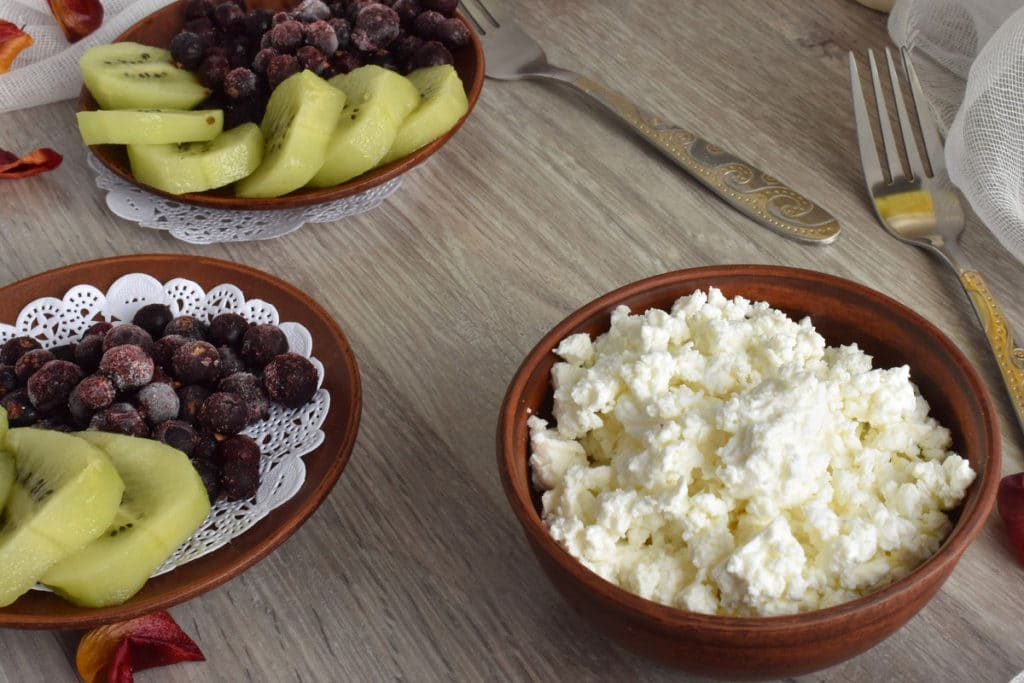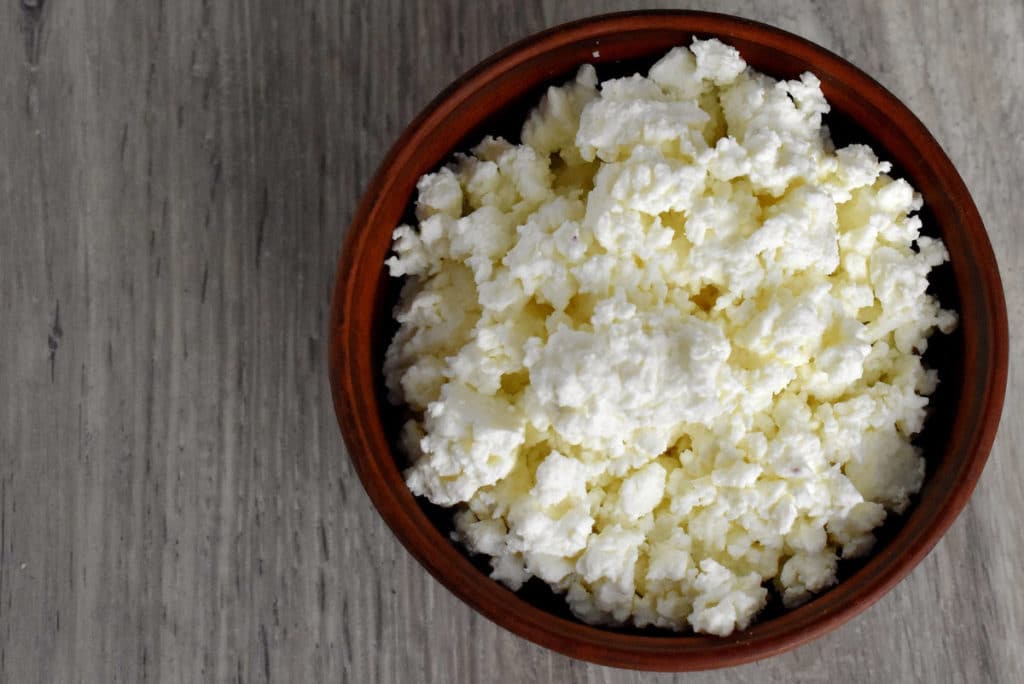Want to know if you can freeze cottage cheese?
This short article looks at If you can freeze this popular cheese, highlighting the pros and cons, as well as other useful information you need to know before preparing this food for freezing.

Can You Freeze Cottage Cheese?
Yes, you can freeze cottage cheese, however it is not recommended, unless you are planning to use it as an ingredient in future recipes.
Even popular manufacturers like, Daisy highlight it on their website’s FAQ that freezing should not be done.
Daisy states:
“Please avoid freezing your cottage cheese, as it can adversely affect the creamy texture and all-natural flavor of the product.”
Cottage cheese is a soft cheese and they generally do not freeze well. When frozen and thawed, the texture will often change, as well as its flavor.
Cottage cheese tends to separate and become watery after defrosting. While the separation can sometimes be fixed by mixing the cheese around to reconstitute it, the texture won’t be the same as when you first bought it.
Ideally, it is best to freeze cottage cheese that has large curds or ones that are full fat, as opposed to low fat/fat free options, which generally do not freeze properly.
When cooking, frozen cottage cheese works well. You will find that a lot of people opt to use it in popular recipes for sauces, soups, lasagna and other cooked meals.
Related: Can You Freeze Ricotta Cheese?
Should You Freeze Cottage Cheese?

As we indicated earlier, while it is not recommended to freeze cottage cheese, it really depends on how you plan on using it.
If you get great deals or discounts on cottage cheese at the grocery store and you plan to cook with them, go ahead and freeze them
When ready to cook, you can always pop them out of the freezer and use as an added ingredient to whatever meal requires it.
If you are freezing to have as a stand-alone meal, then be prepared for a wet, runny and awkward tasting experience.
Related: Can You Freeze Feta Cheese?
How To Freeze Cottage Cheese: A Step-by-Step Guide

When freezing cottage cheese, you can either store it in its original container or you can divide it into smaller portions for individual servings.
Please be aware that is important to store cottage cheese properly in the freezer, as it has it can absorb scents around them.
Here are the steps for freezing cottage cheese:
- Freeze cottage cheese that’s in its original packaging. You can take plastic containers of the cheese and wrap them with plastic wrap or aluminum foil before placing inside a heavy-duty freezer storage bag or airtight container.
- Divide the cheese into different freezer bags or containers if doing individual servings. It is best to portion smaller servings if you have a lot of cottage cheese. When it comes to using it in cooking, it is easier to take out and thaw what you need, as opposed to one container, when you would only be using a portion of it.
- Before sealing/closing, label and date the containers or bags.
- Frozen cottage cheese can be stored for 3 months, before the quality begins to degrade.
Thawing Frozen Cottage Cheese
When you are ready to use your frozen cottage cheese, you are going to have to defrost it.
This can be done different ways.
- Overnight in the fridge. This is the recommended method of thawing it out, as it is the safest.
You will just have to take out the bags/containers that you are going to use ahead of time and place it in the refrigerator to let it thaw out overnight. - Cold Water. If you are in a rush, you could always fill a container with cold water and place the bags/containers with the frozen cottage cheese in it.
This can take a couple of minutes or up to an hour, depending on the size of the portions you are thawing out.
- Use it frozen while cooking. If you are using the frozen cottage cheese as an ingredient to make soups, sauces or other cooked meals, you can adding it directly to the pot or pan, without letting it defrost.
Please refer to the recipe you will be cooking directions for use.
Related: Can You Freeze Cream Cheese?
Wrapping it up
While it is possible to freeze cottage cheese, it is generally not recommended, unless you are planning on using it as an ingredient when cooking.
Frozen cottage cheese, experiences a change in texture and taste when thawed out, which often makes it inedible to eat by itself.
There is no problem when used as an ingredient in doing soups, stews or other cooked meals.